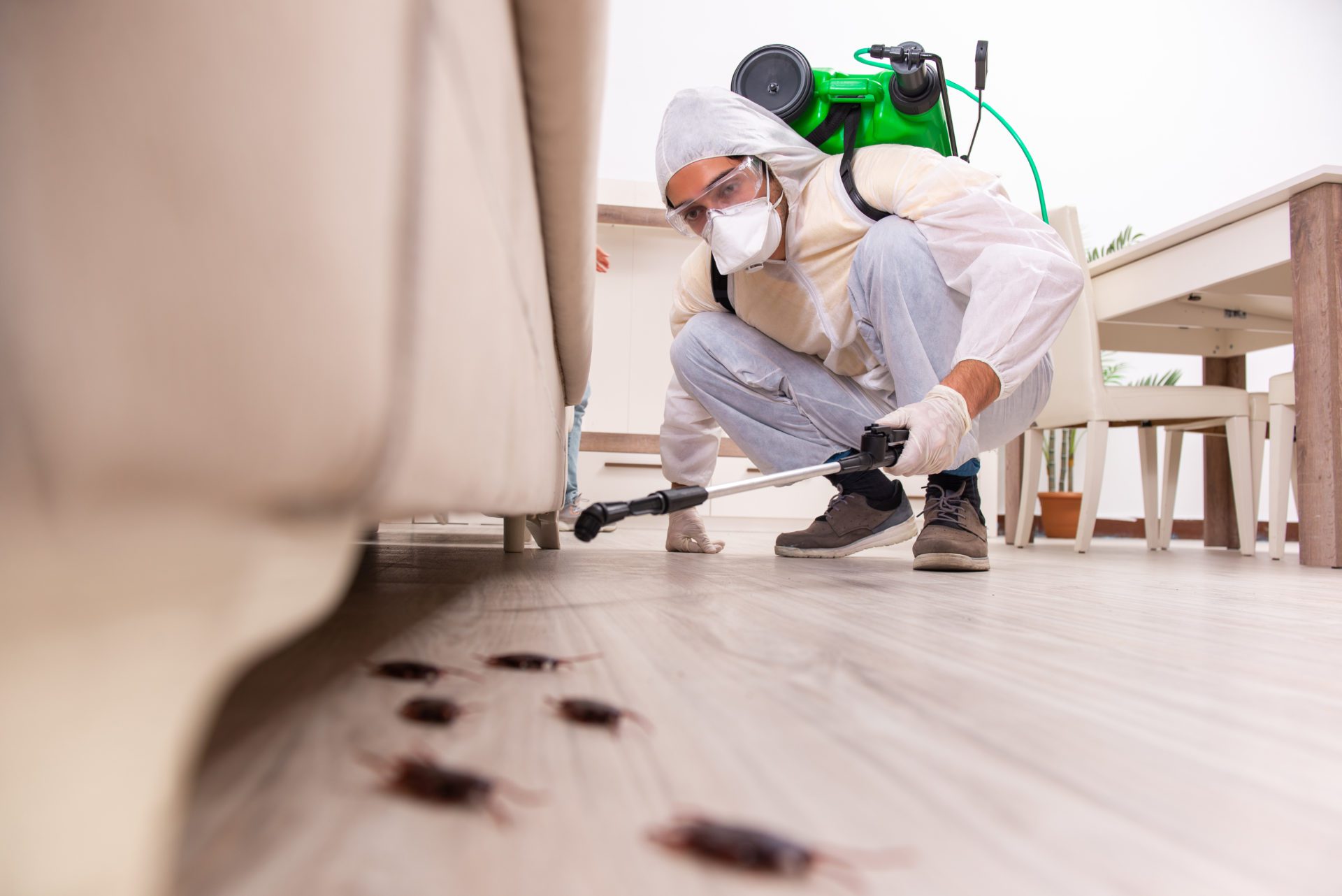Certified Commercial Pest Control Service in Port Charlotte
Uncover the Importance of Insect Control in Maintaining a Healthy Setting and Therapy Methods
Pest control plays an important role in guarding not only human health however likewise the fragile balance of our communities. As we discover the ramifications of insect control methods, it becomes critical to think about both the instant advantages and the long-lasting sustainability of our setting.
The Role of Parasites in Ecosystems
Bugs, often seen only as problems, play a diverse function in environments that is essential for maintaining ecological balance. They add substantially to numerous ecological processes, including pollination, nutrition cycling, and bug control. Many insect species, such as bees and butterflies, are vital pollinators for a large variety of plants, which in turn sustains biodiversity and food production.
Furthermore, insects serve as prey for many killers, producing an important web link in food webs. This interdependence guarantees the survival of various types and aids manage populaces within ecological communities. Decomposer bugs, such as particular beetles and fungis, are critical in breaking down natural issue, thus enriching dirt and assisting in nutrition recycling.
On the other hand, while pests can be advantageous, their overpopulation or intrusion into non-native environments might interrupt these ecological functions. This intricacy highlights the significance of recognizing bug characteristics, as effective parasite monitoring approaches have to consider both their eco-friendly roles and possible impacts on human tasks. Balancing pest visibility while lessening damage is important for preserving the honesty of ecological communities and making certain agricultural performance.
Health Dangers Associated With Bugs

The existence of bugs in numerous settings expands past their ecological roles, as they also position significant health and wellness dangers to people and pets. Lots of bugs, consisting of rats, pests, and bloodsuckers, are providers of illness that can have significant wellness effects. As an example, rodents are known to transmit hantavirus and leptospirosis, both of which can lead to severe respiratory and kidney concerns, specifically.
Bugs such as mosquitoes and ticks are notorious for spreading vector-borne diseases like malaria, dengue high temperature, and Lyme illness. These ailments can cause high morbidity and death rates, particularly in prone populaces. Furthermore, insects like cockroaches and vermins can worsen allergies and asthma, adding to respiratory problems in people, particularly those with pre-existing conditions.
Additionally, the presence of parasites can cause mental tension and discomfort, influencing general well-being. Contamination of food and surface areas by insect droppings and remains can cause foodborne diseases, highlighting the importance of preserving hygienic conditions - Pest Control in Port Charlotte, FL. Comprehending the wellness threats associated with bugs is essential in identifying the necessity of effective bug administration strategies to secure human and animal wellness.
Benefits of Effective Pest Control
Efficient parasite control is important for maintaining a healthy and balanced and secure environment, as it regularly minimizes the numerous risks connected with parasite invasions. Among the primary benefits of efficient bug monitoring is the reduction of carcinogen. Parasites such as rats, cockroaches, and mosquitoes are vectors for illness that can impact both human beings and pet dogs. By controlling these populations, the possibility of condition transmission is substantially reduced.

An additional substantial advantage is the renovation of overall lifestyle. A pest-free environment adds to psychological wellness and lowers tension related to invasions. Effective bug control promotes a more secure setting for children and pet dogs, ensuring that homes remain havens cost-free from harmful chemicals and disease-causing organisms.
Typical Bug Control Strategies
In the realm of bug management, numerous strategies are employed to combat infestations properly. These strategies can be broadly categorized into three main approaches: cultural, mechanical, and chemical controls.
Cultural control involves changing practices to lower pest facility, recreation, and survival. This might consist of crop rotation, proper sanitation, and environment adjustment, which jointly develop a setting much less for pest expansion.
Mechanical web control utilizes physical approaches to remove parasites. Methods such as traps, barriers, and vacuums are commonly used to straight get rid of bugs from a location. This technique is particularly effective for managing rats and bugs without using dangerous chemicals.
Chemical control involves the application of chemicals to take care of insects. These substances can be classified into insecticides, herbicides, and fungicides, each targeting details kinds of insects. It is essential to use these chemicals deliberately, sticking to safety standards and guidelines to reduce possible damage to non-target species and the setting.
Each bug control technique has its benefits and restrictions, and often, an incorporated method combining several methods generates the very best outcomes in maintaining a pest-free atmosphere.
Lasting Insect Administration Practices

Integrated Parasite Monitoring (IPM) is a cornerstone of lasting techniques, incorporating biological, cultural, mechanical, and chemical tactics to handle insects. Organic control entails presenting all-natural killers or parasites to reduce bug populaces. Cultural methods, such as crop rotation and polyculture, disrupt pest life cycles and enhance ecosystem resilience.
Mechanical methods, such as traps or barriers, try here can effectively prevent pest accessibility without chemical treatment (Pest Control in Port Charlotte, FL). Furthermore, preserving healthy environments with appropriate soil management, plant wellness, and biodiversity can normally alleviate insect issues
Education and awareness are important parts, equipping individuals and areas to acknowledge insect threats early and apply safety nets. By cultivating an alternative approach that stabilizes insect control with ecological honesty, sustainable parasite administration practices not just safeguard crops and frameworks but additionally contribute to a much healthier atmosphere for future generations.
Conclusion
By understanding the function of bugs, identifying associated health and wellness dangers, and using varied therapy techniques, a sustainable method to pest monitoring can be achieved. Integrated Pest Management (IPM) highlights an alternative method that minimizes injury to valuable organisms while effectively managing insect populations.